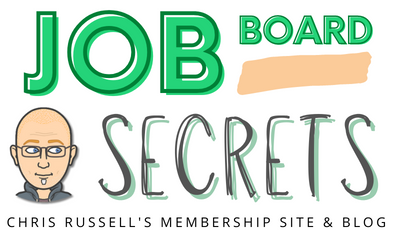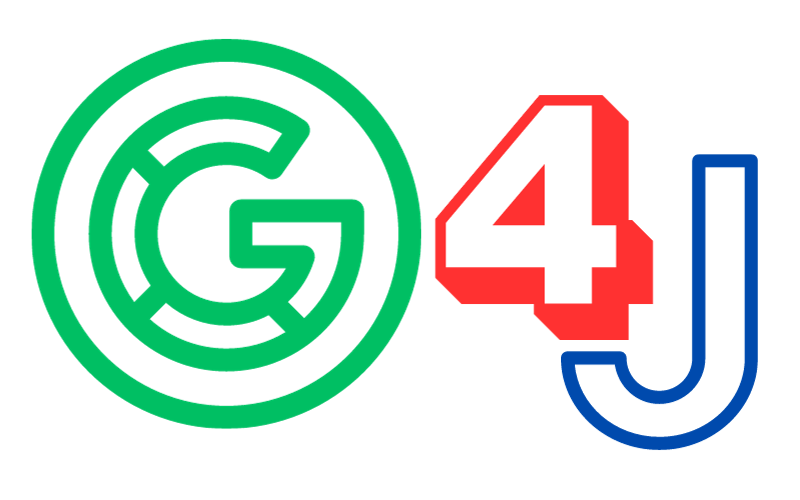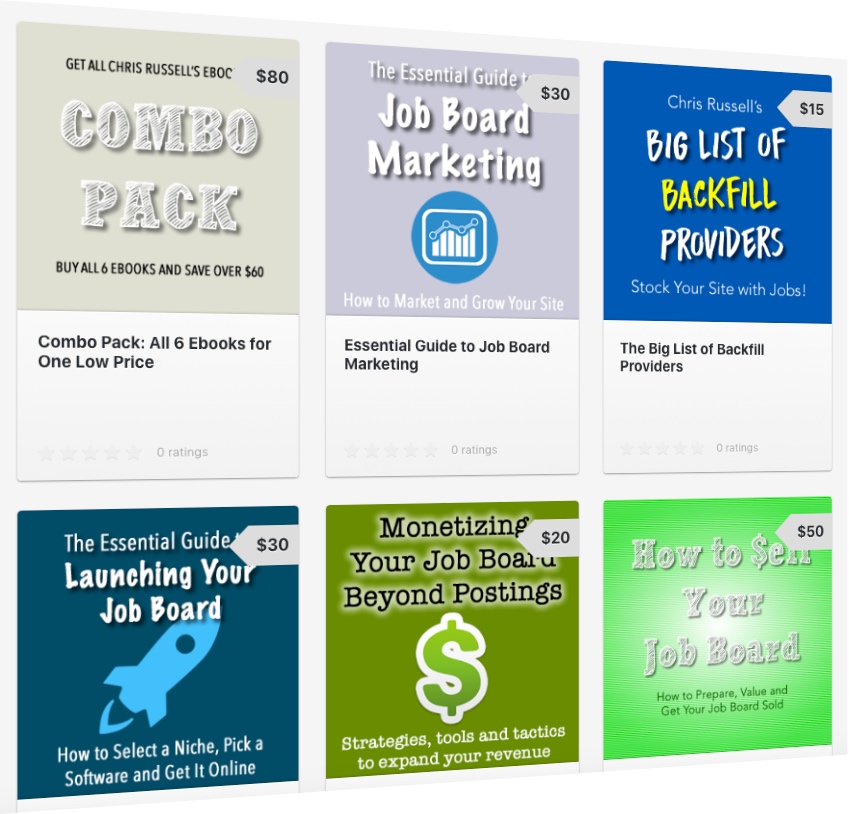Speculation around Google for Jobs continues but no one is quite sure what the paid version will look like nor how it will be implemented. I brought in the founder of programmatic job advertising platform JobAdX to discuss.
Listen to the 20 minute podcast below.
TRANSCRIPT
Chris Russell:
All right, at the recent HR Tech conference, I ran into Amit Chauhan from JobAdX, the programmatic job advertising platform based in Toronto. We started chatting about the future of Google4Jobs, and I wanted to continue that conversation today. Amit, welcome back to the show. It’s been a while.
Amit Chauhan:
Hey, Chris. Thank you. And yeah, it’s been a long time, but it was great meeting you at the HR Tech as well.
Chris Russell:
Definitely. I recall finally your initial days of JobAdX. When was that? It was like 2018 maybe? Something like that.
Amit Chauhan:
Yes. 2017, 2018. That’s right.
Chris Russell:
2017, 2018. That’s when Google4Jobs first came out, 2017. Do you remember where you were when that announcement came out?
Amit Chauhan:
You know what? It’s surprising, and I remember actually talking about this at some of the interview with someone, and I mentioned that in future, I actually see Google actually doing the sponsored listings sometime in future. And well, when Tom actually posted that screenshot on LinkedIn, which set a lot of people in motion, I was like, I was like, “Okay, it’s about time.” So, I think yeah, we know it’s going to happen, we knew that, and yeah, it’s happening now.
Chris Russell:
Yeah, and one thing I’d give Google4Jobs credit for is just this renewed interest in the job market space, I think. I think before they came into the scene, job boards were waning a bit and just the whole interest in that job advertising was waning a bit. And then, all of a sudden you came along. All the other programmatic players have really ramped up since then, and there’s been just a renewed interest in job advertising since they came out, I think. What do you think?
Amit Chauhan:
No, absolutely. I think initially, when we saw Google4Jobs entering the space, there was a lot of skepticism around it, like how it’s going to impact job boards and the traffic buying and selling? But I think over a period of time, people started to get along with it. Even the companies which were not initially along with it, they started to work with Google. I think in recent days, we definitely have seen that the traffic has reduced for some of the job boards. That’s the general consensus that I’ve seen in the space talking to a few people, that it’s not to the level that it was once when it was initially launched, but that could be for various reasons.
But what we are seeing is Google also understand that for now, they were just sending free traffic. And they understand how big up this space could be, and ad tech is the core of that company. So, it doesn’t surprises me at all that they see this opportunity to take into the next step. I think for the lack of better word, they used last couple of years or four or five years in this space to understand how the frameworks in our space works with jobs and everything. And I think they positioned themselves really well to launch the sponsored job ad content.
Chris Russell:
Yeah, it’s been six years now, so they should know what they’re doing by now, and they should understand the space by now, I would hope. But this has been a really slow… If this does roll out, this might be the slowest rollout history of a product based on data that they have already. But let’s get into this because the speculation is rampant these days, but they’re going to launch Pay Jobs sometime early next year. Tell me if you’ve heard that as well. But the big question for me has always been how they’re going to roll this thing out? Because they want this to be as big as possible and make the most money possible, they have to let every possible publisher, from the employer, to the small job board, to the big job board, to the agency, participate in that. But give me your thoughts on how you think they’re going to roll this out.
Amit Chauhan:
It’s a very good question because if you look at it, let’s put it this way, I think there’s no straightforward way for a company like Google to actually just go ahead and create a system that works for everyone. We understand that even if you look at Google Ads, which is their consumer-side platform, it’s fairly complex. It’s not for everyone to use. And what I’ve seen and what the information that I’ve heard from the space and some of the people is that they’re been very selective with the partners that they’re working with.
And I think it’s more for them is to partner with high-volume partners at this time where they can really understand that how the system would work for them, how it would work for those employers or agency partners. I have heard they’re partnering with programmatic players as well, so that actually positioned them really well to get into those enterprise accounts. And this actually gives them a better handle on the whole process. As far as, I think if you talk about is it going to be available for everyone? I don’t think it’s going to be available for just a small business who wants to just go to Google Ads and create a job ad because it’s going to be a little bit of time before that happens. So, right now, I think it’s more from an agency, programmatic platforms. I don’t know if it makes sense for ATSes at this point, but we might actually see that in near future too.
Chris Russell:
Yeah, we could some integration with ATSes in there. But yeah, in order to make this as accessible as possible, they have to basically come out with some kind of dedicated interface, I think, to actually post a job onto Google, and pay for it, and get it in there. They don’t have that today. They have the Google Ad platform, which is that thing is really complicated to use if you don’t know what you’re doing in there. The average HR person, or recruiter, or business owner, to me, would struggle with that interface, trying to post jobs on there. So, it’s interesting that you think that only the big player is going to participate initially, which is going to make the big job boards bigger, essentially, at this point.
Amit Chauhan:
No, absolutely. And I think if you see it from this perspective, I think even more than interface, I think it could mainly be an API as a service, and let the interested partners integrate, and build the interface themself. So, I think that could be a big win for programmatic companies in our space where they can actually consolidate all the spend that’s happening on different medias because that’s exactly where I think the power of programmatic is. If you have a new publisher, which is as powerful as Google, you would want to have that within your ecosystem as well. If Google decides to offer APIs, which in my understanding, that might be what’s happening, that actually gives more flexibility to a lot of the partners early on. And instead of Google trying to build an interface that works for everyone, they could just let the partners build their own interface.
Chris Russell:
Yeah. What are you seeing from a traffic standpoint from Google4Jobs? You deal with a lot of job postings every day with your platform. To me, I’ve always seen that that’s the best traffic ever to get in terms of they stay in your site longer, they click on more pages, they apply to more jobs. What are you seeing from the data standpoint there?
Amit Chauhan:
The traffic is definitely one of the best when it comes from Google. It’s also competitive. And then, we have seen some of the companies in our space, which have done remarkable job when it comes to optimizing your ads on Google4Jobs. So, we work with them as well. And then, I think from our focus, because we work more on the sponsored content side when it comes to programmatic, so I think our media is more driven towards job board, so we don’t get the kind of organic traffic that a standard job board would get from Google4Jobs. But whatever we actually get, it can can works at much higher level.
Chris Russell:
Well, let me move to this, which is Alexander from Crypto Careers, based in Europe, says he’s seen some changes on the interface over there in the UK or Europe. He said they’re removing bookmarks, job alerts, and filters, and making the real estate of the job sections smaller on the search result pages. And as he says that, it makes sense because if it adds in that page, you need to basically refine that interface because it’s very kludgy right now. It’s a mess, basically. When you look at a Google4Jobs search result page, there’s just too much stuff on there, right? What’s your thoughts on the interface?
Amit Chauhan:
Yeah. So, it’s going to, I think we can expect more changes happening there because they would have to… So, Google is not new to this stuff. They understand how they want to handle the sponsored content as compared to organic, but of course when there’s a sponsored content, the organic is going to take the backseat. And I think then, there would be a lot more focus on the quality in that particular case, especially when it comes to organic, because the higher-quality jobs are going to get more visibility again. So, I think that’s where we would have to focus more. If we are not the ones who are sponsoring content directly through Google4Jobs, we might be looking into really improving the job content that we are sending them so that whatever visibility we get organically, it actually is enhanced.
Chris Russell:
Yeah, I almost think they should just move the jobs, use jobs.google.com, which is the interface for all things Google4Jobs in terms of the schema data, and make that like a job board almost, and just play with the interface there almost as almost a standalone site if you think about it.
Amit Chauhan:
Yeah, I think if you look at from how Google has tried in different spaces, you remember they tried products, travel, and everything, and which could be in some level, much bigger market or industry than ours, but Google never actually tried to have standalone pages for them either. So, they understand the value of just incorporating everything within their interface that they have right now. So, I don’t see jobs getting a special treatment there as well.
Chris Russell:
That’s my point though, because they’re trying to fit in too much stuff now on the Search result page, and it’s becoming, they created their own monster here as far as the user goes, and I don’t know, it seems like it should be evolving more around more dedicated stuff, I think.
Amit Chauhan:
Well, we might actually see that okay, that in years to come, that sponsored content become the only content that they’re showing, and everything else, you see their search results, and Google4Jobs as the organic traffic source that we see today, slowly is just put to rest or something. But it’s too early to say now. It depends on how it actually works in the end. What are the metrics around it? Because I think cost will be a big factor. We understand that the traffic that comes from Google is going to perform better, but how much media is actually distributed there as compared to other job boards? So, a lot of those things will play, and how big of a pie is Google going to take out of the market? So, yeah. I think there’s a lot of information that we will see in next couple of quarters, especially after the launch early next year maybe. Once those things clear out, we will know more about how it’s going to disrupt our space in general.
Chris Russell:
Yeah. I still have a question mark in my mind that, okay, how serious are they about this? Because they’ve said nothing about Google4Jobs. They just keep throwing out these little hints here and there. People get a screenshot, and it’s like, “Okay, are they just experimenting or are they actually serious about this?” And I still don’t know the answer to that question, but what do you think?
Amit Chauhan:
See, I think they’re definitely serious because Google shut down projects as soon as they don’t see a value in it. So, we understand their ATS, they had their ATS, they didn’t really try to keep it along while it was not working or something. In that particular way, if we look at Google4Jobs, it’s been there consistently. We don’t know if they have made any significant improvements in there or not, but it’s still alive. Now, when we look at and when we see that, okay, they’re experimenting with sponsored content, that actually makes sense. That actually also shows their commitment to the space and to the vertical in general. So, it’s a good indicator for us that okay, they’re ready to invest in the space, and especially, looking into this year, which has been a very difficult year for tech companies in general.
So, if they were not interested in our space, we would not see them investing in a space that’s not on their radar for long-term plan. So, it’s a good indicator that they’re still focused on it, they’re still committed to investing in our space. And it doesn’t surprise me that they’re being very secretive about it, that they have created a portal where you can go and reach, submit a request or anything like that. It’s more about who you know and how you start a conversation there and get going.
Chris Russell:
I wonder why it’s so secret though. They have no competitors. They’re the biggest searches on the planet. Why wouldn’t they make it more publicly beta that you could play with? I don’t know. But when it comes to optimizing for Google4Jobs, what are your three best practices there? Obviously, I think you need salary information helps rank your job better. What else do you… Can you talk about that?
Amit Chauhan:
So, the first is definitely the quality and how the job is crafted, be it the job title, the description, all that information, and how unique it is. If the job is coming directly from an employer, that’s definitely going to rank more higher as compared to if you are getting jobs from like it’s after three or four different layers. So, how close you are to the actual employer, that actually is definitely going to have an impact. Salary information, location, and just having a very direct title actually goes a long way.
Chris Russell:
Hey, here’s a question for you. Let’s talk about, switch gears a little bit to AI. I’m curious how you think AI is going to impact job search in the future? What’s the future job board look like with AI in the picture? You have any ideas around that?
Amit Chauhan:
Yeah, I think I was just reading somewhere today itself that job seekers are now using ChatGPT to search for jobs as well and everything. I think from where we are and how job search has been in this space, tools like AI can help us, but they’re not going to drive everything. They’re just going to be co-pilots. And where they could be co-pilots is maybe in organizing information or automating the processes. But for the job boards, the data that job boards have and how they are working behind the scene, that’s still going to be be critical. I think important factor for job board is how quickly we adapt to AI and how we actually optimize our own processes, like be it search. But one of the common criticism job boards have faced over the years is their search is not good. Be it like the emails that we get from email alerts, which are completely irrelevant.
Chris Russell:
Yeah, well, you can put LinkedIn in there.
Amit Chauhan:
Exactly. And these are the bigger companies we are talking about, right? So, I think one of the things that what we should see with AI is, and a lot of these large language models, is that this gives us opportunity to really fix things that like smaller job boards didn’t have resources to do. And that has been the challenge. If you’re a small job board, you don’t have any data team or AI team that can actually build those models for you, but now, you have those things available. So, now, you can implement them without needing to have your own data science team to manage it and really fix those things. So, quality is going to be the focus, how targeted your searches are, your results are, and what kind of results you’re serving to the candidate.
Chris Russell:
Job alerts, to me, I think we should digress. We should just focus on the title, keyword in the job title. That’s it. If you do that, you’ll actually increase the accuracy much better. You’ll have less alerts going out. But that’s one way I think job boards could fix. Give me an option of just doing an alert for a job title based on a keyword, not just anything in the listing. That’s what I would want.
Amit Chauhan:
No, absolutely. I think when we talk about job alerts, I think a lot of job alerts we see, which are not matched, could actually happen because a lot of reasons. Because sometimes, we see candidates land on a job board to subscribe to an alert, but that’s the only thing the job board would have about them is their email. And that’s a downhill from there. How a job board situation like those is a question. To some extent, if you don’t have any other information about the candidate, just don’t send them the email. That’s one of the reason. But yes, but if someone like LinkedIn send you poor email alerts, that’s not acceptable. Yeah, they have a lot more information about people. They should do better.
Chris Russell:
Exactly, exactly. It’s been great catching up on that. What’s new with JobAdX? Give us a quick update on the company.
Amit Chauhan:
Yeah, so we continue to grow. We recently released our SaaS offering. It’s called Optimize, so it’s a programmatic management platform. The idea that we have always been that we want programmatic to be accessible for employer of every size. So, if you are a small startup or if you’re a programmatic agency, Optimize works for everyone. So, you can just sign up on jobadx.com and take it for a spin.
Chris Russell:
Cool. Cool. I know we were talking about your job inventory was down a bit this year. Of course, I think every job board inventory is down. Have you seen any kind of uptake recently? What are predicting for next year as well?
Amit Chauhan:
No major changes just yet. I think even the holiday season this year has been slower, so we don’t see much of a change, but I think we are hopeful that maybe, things would change in Q1, Q2. But yeah, right now, it hasn’t been the growth that our industry has seen in past couple of years.
Chris Russell:
Yeah, well, January’s fast approaching. It’s when, I call it the start of the job hunting season the first Monday after the new year. So, we’ll see how things go in January, and yeah, definitely come back and give us an update.



